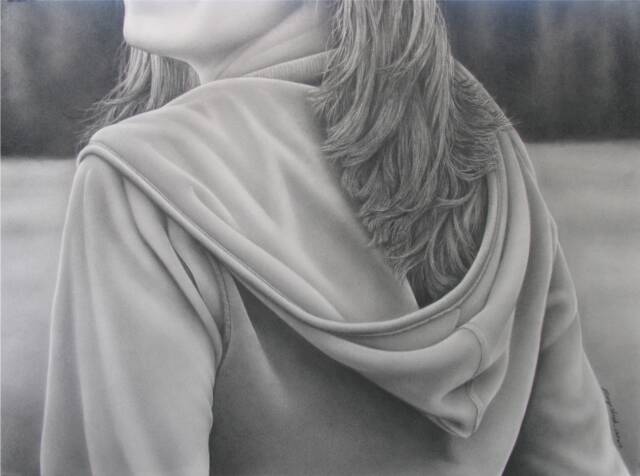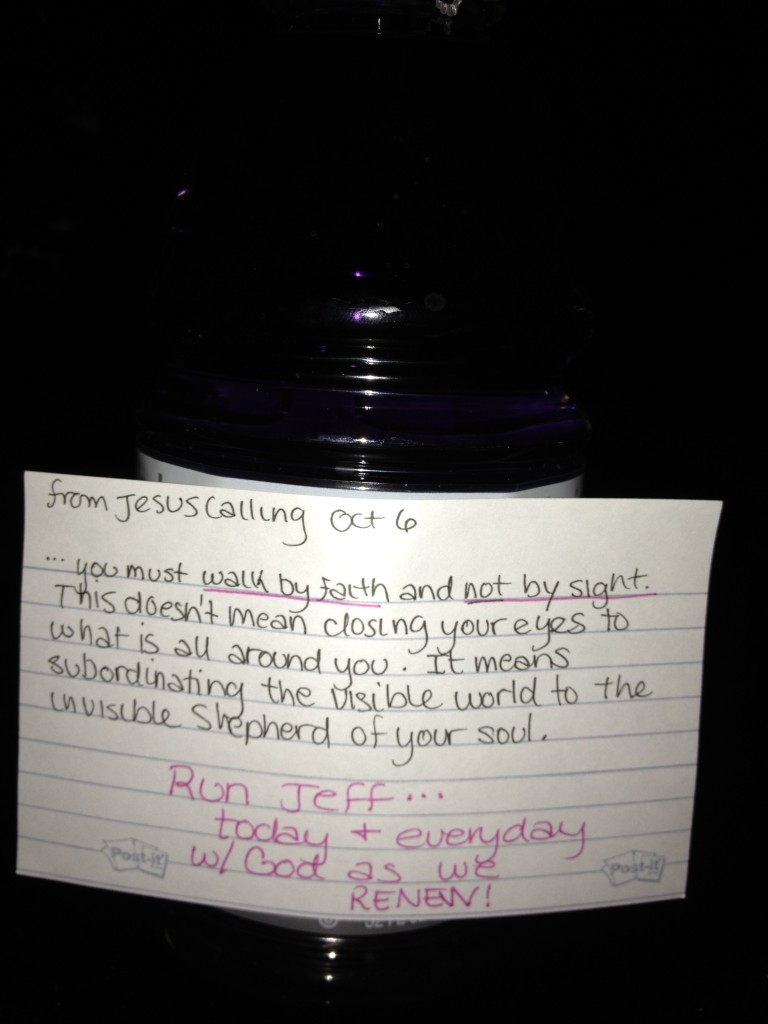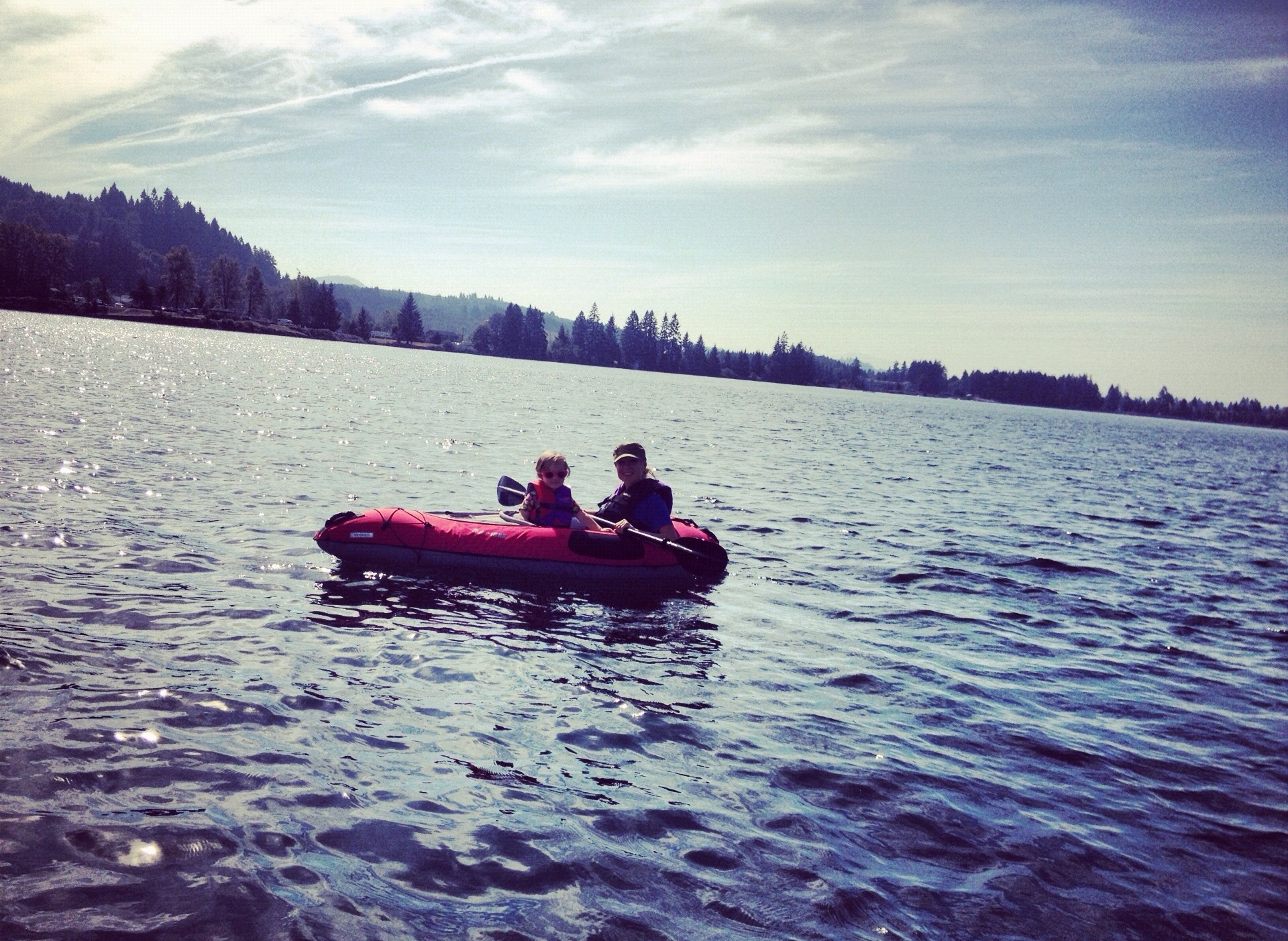Just for a moment, glance back.
“And such were some of you. But you were washed, you were sanctified, you were justified by the Lord Jesus Christ and by the Spirit of our God.” 1 Cor. 6:11
~
Sunday night we sat under the birch tree for one last outdoor gathering of church. We were discussing–as a church family–where we wanted to give money globally. We were discussing wells and water, micro-loans and mosquito-nets. We all had blankets around our shoulders, excited that because we’d stayed outside one more week we had saved $235 (the weekly cost of a rental space) that we were then able to send overseas to those in need. Jeff was sharing that his dream is to give 50% of all our church income to meet urgent needs around the world.
As I sat there, I thought: Am I dreaming? Do I really get to belong to a group of dear, humble saints who get giddy over mosquito-nets and micro-loans? Who are really willing to give their lives away? Afterwards, I walked into my house, only to find my kitchen FULL of people doing dishes. Laughing, talking, up to their elbows in suds. Really? Do I really get to be part of this family, where everyone pitches in and cleans the kitchen when we’re done?
When everyone had left I watched as Debra–our housemate and fifth family member–tidied up before heading downstairs to bed. Living in community with her has already proven such an overwhelming gift of grace and love. Who knew? I, who used to say I never wanted anyone to live with us. Who knew God could change our hearts–by His grace–so much?
I looked around at my funny house. I remember the first time I saw it I thought it was the ugliest thing I’d ever seen. I remember the process, of letting go and selling our “dream” home. I remember weeping over The Hole in Our Gospel and adding a couple more dear little sponsored children to our family.
Oh, of course we still have so far to go. This is not an “I’ve arrived” post. *smile* But Jeff often reminds me that occasionally glancing back over our shoulder long enough to marvel at the grace of God is really a good thing. He has done so much. He has changed us so much. I am a different girl than I was just two years ago.
You are different too, right?
What has He done? Speak it! Share it! Tell the world the testimony of what God has done for you.
God has set me free from being anxious over money. He’s made me not care about keeping up with the Jones’s or achieving some white-picket-fence American-dream life. He has given me courage where I used to be bound by the fear of man. He’s given me joy with my kids where I used to feel stress. He’s breaking me down–over and over and over–and emptying me out. I can feel it. It doesn’t always feel good, but I can feel it and I know it’s Him.
A simple, brief reflection like this gives me courage to know that He will continue His good work. He is not done with you yet! Often I look and see how far I have to go. How selfish I still am. How anxious I often become. How frustrated I still sometimes get.
But He has done mighty things in my life and I rejoice in them and believe that He is not done with me yet!
“And I am certain that God, who began the good work within you, will continue his work until it is finally finished on the day when Christ Jesus returns.” Phil. 1:6
Can I get an Amen!??
Friend, He is not done with you yet. Where have you been? How has He changed you? Where has He set you free?
Glance back today, just for a moment, and rejoice in all the good He has done.
And be glad … He isn’t finished yet.
Just thanking Him today. Thanks for reading.
What Moses knew, what we must know
We talked last week about Moses’ leadership, and if we really want people to see God move, we have to lead with transparency and courage, embracing ambiguity and learning to live by faith. In short, Moses had to answer a lot of questions with a simple and humble, “I don’t know.”
But in the midst of all the “I don’t know” responses, there were a number of things he did know. There were some thing God spelled out for him loud and clear:
Moses knew the kind of people God wanted the Israelites to be.
God didn’t spell out the map, the gameplan, the agenda, the schedule. Again, no coordinates or timetable are indicated at all. But God spent a whole lot of time communicating to Moses how He wanted His children to be a people set apart, glorifying Him with everything they did. He spelled out how He wanted them to live, to live as a shining example of God’s provision. He made it clear they were to live on manna, trust Him for their daily needs, absolutely refuse to mingle their beliefs with the idolatrous nations around them.
Though they had no idea where they were going or how long it would take, they knew plain well what God expected of them along the way.
In other words, we as leaders (of 3 small children or 3 million adults) cannot spell out exactly what the journey will be like or how long it will take or exactly what the destination will be. But we can lead people to live as Christ-centered, God-glorifying sojourners, glorifying God in every step we take along the way.
(I didn’t say it’d be easy.)
God made clear to Moses how He wanted His children to be distinct. They were to stand out, to be different, to be marked by a radical departure from the ways of the world. This included both behavioral standards and dietary laws. We are no longer “under” these dietary laws and behavioral standards that were specific to that time and culture, but God is continuing to lead His children to live different, to stand out (and not because we’re obnoxious!), to be marked by a radical departure from the ways of the world. So you, as a leader, are responsible for leading your 3 children or 3 million people in how God wants you to live out His mission in this world. All of us have the same mission: To love the Lord our God with all our heart, all our soul, all our mind, and all our strength. And we’re to love our neighbors as ourselves. That’s my mission. That’s your mission.
How will you do that?
That’s what we need to know.
The most common question Jeff and I are asked these days is this: “What makes this new church-plant any different from all the other churches all over the place?” This is usually asked by people who are fed up with church or frustrated, or who have been hurt or who are searching (aren’t we all?). Most recently someone asked me to answer that question in 4 sentences. Here is what I said:
1. We exist to spread the gospel, making disciples, furthering God’s Kingdom, rather than spreading our church name, making followers of us, furthering our own empire.2. We equip people to go live for God where they already are, in their workplaces, communities, families, and current spheres of influence, rather than programming frequent events and asking people to come to us and support our activities.3. We let resources flow through our church, keeping our operating expenses as ridiculously low as possible so that funds can be used to bless and serve a world in need of hope, rather than on creating a comfortable environment for ourselves.4. We encourage multi-generational family-modelled ministry , where all ages and life-stages are learning and serving together, rather than dividing people into homogeneous and unnatural groups.
Now here’s the thing–while God’s word clearly spells out how He wants us to live, exactly what that will look like is going to vary with each person, church, family, situation.
But we must think long and pray even longer to ask God Who He wants us to be.
We won’t know the exact length of the journey, or even where we’re going, but we can know who God wants us to become along the way.
He wants us to become more and more like His Son.
Would you spend some time today thinking and praying about who God wants you to be along the way? What are your distinctives? How will you seek to glorify Him in your family, church, workplace, sphere of influence? Think, pray, and jot down ideas. Yours will be different from mine, but we can each glorify God along the journey. Have a blessed Monday; Thanks so much for reading.
Week's end with thanks
- This waiting on Jeff’s car early this morning when he left for his half-marathon today! So grateful for amazing saints–friends–who encourage us daily.
- “Church” last Sunday night around our dinner table.
- Dreaming.
- Growing.
- Re-adjusting.
- Patience.
- Grace.
- That my awesome man is willing to forgo the formal race (and the fee!) and run a half-marathon by himself! 1 Corinthians 9:27
- Meeting him at the finish line.
- That His mercies are new every morning.
- Subordinating the seen to what is unseen.
- That love covers a multitude of sins (1 Peter 4:8)
- A HUGE cooler full of groceries, delivered to our kitchen by dear friends. What on earth? God is amazing!
- Apple juice, apple sauce.
- Pioneer Woman cauliflower soup.
- A whole grocery bag of corn on the cob, Dutch’s dream dinner.
- Chocolate chip cookies!
- Debra’s generosity. Again and again and again.
- Sunflowers on the table, smiling at me.
- Watching Dutch & Jeff outside in the yard, doing man work. I love my men.
- A clean kitchen.
- Early morning snuggles with my two squirrels.
- Pancakes.
- All around the table.
- Answers to prayer.
- Snyders. That we never want to leave.
- Half the Sky documentary. So many blessed opportunities to bring hope to our world.
- Asking God for His dreams.
- PK 🙂
- All these cloudless, glorious blue-sky days. Day after day after day! What a fall we have had! Thank you, Lord.
- Heidi’s words: “Mommy, you’re so pretty.” Me beaming at her and saying, “Thank you, Heidi!” Then her words, with a big smile: “You’re not really so pretty but I like saying that.” Hahaha, gotta love kids’ honesty!!
- Sunrise.
- Our family of five. (We love Debra!)
- Crisp fall air.
- Raking leaves.
- My squirrels, awake now. Signing off for family day.
GIVE: first
“One gives freely, yet grows all the richer; another withholds what he should give, and only suffers want.”
Provers 11:24
If there is one principle God has been impressing on my heart lately it is this: God’s kingdom is an upside-down kingdom. The first are last. The meek inherit most. The humble are exalted. The greatest shall be the servant of all.
When we give away we become rich. When we hold on tight we lose it all.
I know there’s a lot of controversy surrounding tithing. Because the 10% (tithe) isn’t clearly commanded in the New Testament, we are careful not to teach as a hard and fast rule that all believers must tithe. And I agree with that. BUT, perhaps in all our careful dancing around this issue we have actually kept many earnest believers from experiencing the blessing of faith-filled first-fruits giving.
What do I mean? I mean this:
For as long as I can remember my parents taught us to give first. We tithed off everything. Perhaps we “shouldn’t” have had a hard and fast tithe rule but can I just say that it was a blessing to be instructed from a young age and to have that habit instilled in us early on. My dad shares stories from his own early adulthood, learning to follow God’s upside down kingdom ways by giving first and even doing financially-backward things in order to be generous to God.
And it’s worked. Wow has it worked.
Now, I want to be careful here because I’m not saying “you give to God and then He makes you rich.” He might not. BUT, we also sometimes become so leery of the health-and-wealth garbage that we’re afraid to believe clear scriptures such as the one at the top of this post. Its meaning is clear: When you give freely you grow richer. There’s no other way to say it. Proverbs 3:9-10 is even clearer:
“Honor the LORD with your wealth and with the firstfruits of all your produce; then your barns will be filled with plenty, and your vats will be bursting with wine.” Proverbs 3:9-10
I’m no scholar but this reads clearly to me: Give to God your first and best and you will have all that you need.
Didn’t Jesus say the same thing when talking about material needs?
“Do not be anxious saying, “What shall we eat? or “What shall we drink?” or “What shall we wear?” … your heavenly Father knows that you need them all. But seek first the kingdom of God and His righteousness and all these things will be added to you.” Matthew 6:31-33
He’s not just talking spiritual stuff! Not just spiritual needs. All of these passages are talking about real stuff. Giving material stuff and receiving material stuff. Yes, God might not make us millionaires (because He loves us too much to ruin us!), but when we give Him freely the first and best of what we have, He WILL supply all we need.
Test Him! Try Him! He says to try it out:
“Bring the full tithes into the storehouse, that there may be food in my house. And thereby put me to the test, says the LORD of hosts, if I will not open the windows of heaven for you and pour down for you a blessing until there is no more need.” Malachi 3:10
Is money tight right now? Test him! Get with your spouse and read these passages together and get on your face and pray and GIVE. Give 10% off the top of your next paycheck FIRST and test Him in this, if He will not open the windows of heaven for you and pour down for a blessing until there is no more need.
When we’re most tempted to stress is when we most need to trust Him, test Him, and give. {Trusting Him with you! Thanks for reading.}
How to get the right kind of attention from God
- His wrath is on the proud (2 Chron. 32:25)
- He pays back revenge on the proud (Ps 31:23)
- He will not tolerate the proud (Ps 101:5)
- He mocks the proud (Prov 3:34)
- He tears down the house of the proud (Prov 15:25)
- He detests the proud (Prov 16:5)
- He punishes the proud (Prov 16:5)
- He humbles the proud (Is. 2:12)
- He throws the proud to the earth (Ez. 28:17)
- He scatters the proud (Luke 1:51)
- He opposes the proud (James 4:6)
- He saves the humble (2 Sam. 22:28 & Ps. 18:27)
- He keeps back disaster from the humble (2 Kings 22:19)
- He forgives and heals the humble (2 Chron. 7:14)
- He holds back destruction and delivers the humble (2 Chron. 12:7)
- He turns His anger away from the humble (2 Chron. 12:12)
- He hears the humble (2 Chron. 34:27)
- He guides the humble in what is right (Ps. 25:9)
- He teaches the humble His way (Ps. 25:9)
- He sustains the humble (Ps. 147:6)
- He crowns the humble with victory (Ps. 149:4)
- He shows favor to the humble (Prov. 3:34)
- He allows the humble to rejoice (Is. 29:19)
- He looks on the humble with favor (Is. 66:2)
- He gives rest to the humble (Matt 11:29)
- He exalts and lifts up the humble (Matt 23:12, etc.)
- He gives grace to the humble (James 4:6)
- He shows favor to the humble (1 Peter 5:5)
{Yes, please! This is the kind of attention I want! Let’s humble ourselves before Him (and others) today. Thanks for reading.}
If we really want people to see God move
I can almost hear the conversation:
“So…how long are we going to be here?”
“I don’t know.”
“You think maybe a day, two days, a month, a year?”
“I don’t know.”
“Where are we going next?”
“I don’t know.”
“Well, when will we settle down and stay?”
“When we get to where we’re supposed to go.”
“And where’s that?”
“I don’t know. I’ve never been there.”
“Awesome.”
This is how I imagine the conversations between the several-million Israelites and Moses, their leader.
Every conversation went something along the lines of the people asking what they were doing or when they were leaving or how long the journey would be or where they were going.
And Moses saying, again: “I don’t know.”
See, God clearly called Moses. I mean, He gave him a burning bush for crying out loud! This was a very clear calling.
But it wasn’t very detailed. Check it out:
“I have come down to deliver them out of the hand of the Egyptians and to bring them up out of a land to a good and broad land, a land flowing with milk and honey … Come, I will send you to Pharoah that you may bring my people, the children of Israel, out of Egypt.” Exodus 3:8,10
I can only imagine my own response: Ok, got it. Let me just make sure I’m understanding: You want me to bring your people to a “good land” that flows with milk and honey. Where exactly is this place? Can I get the coordinates of this location? Is there a timeframe on this? Are we thinking this deliverance is going to take 10 hours, 10 days, 10 years? Any clues? Do you have the schedule for me, a clear map so I can plan our rest stops and let everyone know what to expect? I’d like to be able to clearly communicate with the people so they know the plan.
Silence.
No map. No schedule. No coordinates. No agenda. God’s leading through Moses went like this:
“At the command of the Lord the people of Israel set out, and at the command of the Lord they camped.As long as the cloud rested over the tabernacle, they remained in camp. Even when the cloud continued over the tabernacle many days, the people of Israel kept the charge of the Lord and did not set out. Sometimes the cloud was a few days over the tabernacle, and according to the command of the Lord they remained in camp; then according to the command of the Lord they set out. And sometimes the cloud remained from evening until morning. And when the cloud lifted in the morning, they set out, or if it continued for a day and a night, when the cloud lifted they set out. Whether it was two days, or a month, or a longer time, that the cloud continued over the tabernacle, abiding there, the people of Israel remained in camp and did not set out, but when it lifted they set out. At the command of the Lord they camped, and at the command of the Lord they set out. They kept the charge of the Lord, at the command of the Lord by Moses.”
I have a whole new level of respect for Moses’ leadership.
This kind of leadership is sitnkin’ hard. Our world tells us that leaders need to have a clear plan, a clear vision; they need to know exactly what to do and where to go in order to inspire confidence in their people. And because of that, as Christian leaders we can often spend the majority of our time constructing our own maps, agendas and schedules instead of teaching people to watch for and wait on the Lord.
Can I just be honest and say it’s easier to make our own map than it is to wait on the Lord?
In our RENEW adventure it’s as if God is only giving us about a 2-inch level of visibility at all times. He is giving us the exact next steps, one at a time, but nothing further. No map. No schedule. No agenda. When the cloud moves, we move. And I’ve been cool with that–that’s been common practice in our lives as a family.
But it’s a whole new ballgame when you’re leading a whole bunch of other people in the same way!
It’s hard when your kids, your family, your spouse, your friends, whoever it is you are responsible for, look to you and ask: “So what’s next? When do we leave? Where are we going? What’s the plan?”
Its takes transparency and courage to look them in the eyes and readily admit:
“I don’t know. I’ve never been this way before. We just need to watch and wait for God for our next steps. Will you keep an eye out for Him with me?”
And here’s the thing: When we spend our time constructing our own agendas, plans, and maps, it leads people to rely on us. It sets their eyes on us. And if we live according to the world’s values, that’s exactly what they want. In our world system leaders want followers to look to them. But in God’s kingdom, we want people to look to God. We don’t want them to rely on us. We want them to keep their eyes peeled for God’s movement. We want them to know that when He moves, we move. We want them to see right through us and learn themselves to trust and wait on God alone.
Easier said than done.
Whether you lead one small child or a three million adults, you do lead someone. And we have a choice whether we will construct our own plans to appease those around us and make them feel falsely secure, OR whether we will admit that we don’t know the way, but invite them together with you to watch and wait on God alone.
As we embrace transparency with courage we will all learn to watch and wait for the LORD …
And we will see Him move.
~
{The theme of our life right now! Waiting on Him, with you. Thanks for reading.}
When everything comes crashing down around you
I heard the thunderous crash and Heidi’s blood-curdling scream and ran into the kid’s room.
The large, wooden dresser had fallen on top of my tiny girl.
I pushed up the dresser, gathered her into my arms and ran into the living room. As I listened to her cries, encouraged that she was coherent, I could make out the words, “I was trying to put on my swimsuit.”
My sweet girl had been trying to be brave.
See, “Try new things” is not exactly on my kids’ list of favorite things to do. They would both be content staying home, all day, every day, and playing Legos or reading books or doing our normal routine. This works well since I’m a homebody too, but every once in awhile we’ve got to push these babes to risk … just a little.
Insert swim lessons.
I had found a class for 3-5 year-olds, so they could be together. I told them they could hold hands, that I’d be nearby, that no one would dunk them under or throw them in the deep end. Still, they both cried. We counted down the days until we began, and the morning of I was so blessed to see them make a valiant effort at bravery. My 5-year-old son started repeating to himself, “This is going to be fun. It’ll feel like playing!” (I’m all for self-talk!) and my little daughter announced she would get ready all by herself.
So she, wanting to be brave, wanted to get her swim-suit for class. But it was in the top drawer, so she opened the bottom drawers and climbed up the front. Yes, you can guess what happened next. By God’s amazing and miraculous mercy, my son’s bed broke the fall (hooray for tiny shared bedrooms where there isn’t even enough room for a dresser to fall flat on the floor!) and so it pinned her head against the bed, the dresser drawers against her face and her body hanging down off the bed.
It looked worse than it was. I expected her teeth to be through her face. I expected blood everywhere. But because of the soft bed, she didn’t have a single scratch. After she quit crying a slightly puffy lip was the only real damage we could find.
Praise God.
She was still a little shaken when it was time to brave the pool waters, but she quickly conquered her fear and had an awesome time. Swim lessons ended up being one of the greatest experiences of my kids lives so far. It was such a significant victory and made them so much braver ever since.
I couldn’t help but see the parallel in my own life.
The enemy does not want us to be brave. He wants to keep us living ever-cautious, ever-safe, never risking, never trying new things. When we do make a choice to branch out in faith, he will do whatever he can to intimidate us, scare us, fill us with fear, whatever he can do to keep us from bravely moving out in faith.
He will drop dressers on us. He will drop bombs of discouragement and depression. He will bring unexpected conflict, confusion. He will toss heaviness our way, misgivings and misfortune. But the amazing part?
We will walk away unscathed.
You’ve probably heard it said, Satan is de-clawed. He can try to scare us, intimidate us, and fill us with fear, but he cannot truly harm us. And no matter what may befall us …
We will not be shaken.
As my daughter shook off her scary incident and persevered in her swim lesson-adventure, I knew God was telling us to to persevere in faith, be brave, risk, and refuse to let the enemy intimidate in order to keep us cowering.
What are you attempting to do today? Where are you trusting God? Stepping out in faith? Risking? Being brave? Can you see where the enemy would love to intimidate you? Scare you? Use fear tactics to keep you cowering? How can you choose to trust God and not be shaken today? Can I offer an idea: Read Psalm 91 right here. This just “happened” to be my Bible reading the morning that this happened. Praying bravery and courage for you today; thanks for reading!
A Simple 4-Step Plan for Family Devotions
Sometimes “Family Devotions” can feel daunting. Perhaps we, as women, have the idea that the man is supposed to be the “spiritual leader”, the head of the household, so we sit around and wait for him to do some grand “spiritual leading” (and put a great deal of pressure on him about it) but he’s not sure what to do, so we feel grumpy about it, and he feels grumpy about it because we’re grumpy about it, and we’re all not sure what this family devotion stuff is supposed to be about, because it sounds like a really big deal.
And it is a big deal … just not in the way that we think.
Perhaps we envision pulling out the giant family Bible and everyone sitting solemnly around the table with folded hands, gently nodding at the sacred words, then praying eloquent prayers in hushed voices. So when we try that and put tons of pressure on ourselves, then little Johnny accidentally farts during prayer time and starts laughing and little Jenny pees her pants during scripture reading and starts crying hysterically, we throw our hands in the air and quit.
Family devotions can be simple and easy. We really can relax about how it looks and whether we’re “doing it right.” The hard part is just doing it. There are lots of fun ways, but here is our daily routine for morning devotions. And just so you know, sometimes Jeff is with us and sometimes he’s not. It’s unreasonable to put all the pressure of “leading” everyday on their shoulders. Talk through this together, and decide what simple things you can do each day to lead your kids to Jesus, together. Here are some ideas for a simple 4-part daily devotional routine. Read–Memorize–Pray–Live
KNOWING GOD THROUGH HIS STORY
Learning about God’s character is a lifelong pursuit. Everyone, of all ages, whether three, thirty-three, or ninety-three, can meditate and discuss our Father’s character and attributes as they come to us in Scripture. Take a passage, a narrative/story in particular (great kids’ Bibles and resources here), and consider general questions such as:
- What does this Bible story reveal about who God is? (His character)
- What actions in the story do we see by God’s people? Are these actions godly or selfish? (Godly traits are those such as generosity, courage, wisdom, faithfulness, and humility, while selfish traits usually center around pride, greed, and are played out in the ways of foolishness.)
- In light of who God is, and what He has done for us, as seen in this story, what godly response does He want from us today? (Think about what your kids, and you, are facing in daily life, and connect the dots.)
These questions, and others like them, are the building blocks of all meaningful Bible study. Revise the wording if needed for your kids. Resist the urge to supply all the correct answers from the outset, and invite everyone to the joy of discovering who God is, what He has done for us, and how He desires for us to respond to His grace.
TAKING HIS WORDS TO HEART: Scripture Memorization
Within the Scripture story there usually is a verse that leaps off the page. Think of a way to summarize it in a rhythmic way. Examples:
- “Be strong and brave. Do not be afraid.” —Deuteronomy 31:6
- Or, “Be strong and brave, be sure to obey. Don’t turn to the left, don’t turn to the right, that you may have success.” —Joshua 1:7
(Click reference links above and see what the “adult” wording would be, and note how they’ve been shortened or revised for kids’ minds and hearts.)
An idea: use hand motions, or make the verse sound like a song. Some fun and easy kid’s verses to memorize are Letter Lessons.
PRAYING TOGETHER
After reading Scripture and pulling out the key concepts and lessons, turn this into a prayer to God. None of us can change on our own, and it’s great to model for our kids that we need God’s Spirit and power to change us from the inside out. You might say, “Let’s pray: ‘Dada God, please help me to be brave and obey Mommy when it’s time for bed.’” Just something simple. You’re probably already doing these things, but try to link the prayer to something you’ve read in scripture.
This models for our kids how to intake and apply scripture right away. Ask your kids what they feel scared about, nervous, happy. Spend time talking to God about whatever they are feeling. Encourage them often whenever they take steps in prayer!
LIVE IT OUT
Finally, take some action step as a result of your time in the Word and prayer. Be “doers” of the Word right away. Give your kids some “practice” being brave, or obeying right away, or act out what they might do if they are in a difficult situation. Just think of something fun you can DO right away to practice whatever you just learned.
Finish your time with a special treat, or snuggle and wrestling time, or whatever your kids love most. Be all there. Connect family JOY and family fun with family worship.
- For more on good resources, such as choosing a family Bible and more, see Renewal: leading our families in the Gospel.
{Why not put some gospel-habits into practice right away, this week? What are your favorite family devotional activities? Please share and thanks for reading!}
Week's end with thanks
- Flourishing with the ladies of OCCC. So grateful for their warmth and receptivity! So grateful for God’s grace and power moving in our lives!
- Blessed, blessed, blessed afternoon and evening with Seifers.
- Training.
- Learning.
- Wrestling.
- Growing.
- Asking questions.
- Searching His Word.
- Kids visiting me at the retreat, on the playground. Dutch: “This is the best time of my whole life!” Precious.
- Heidi learning to skip. (Daddy so proud.)
- An afternoon nap.
- That God is greater.
- Prayers from dear friends.
- Those morning runs with Dani.
- Zucchini cookies!
- Candi.
- Plums, plums, plums.
- Camping.
- Unplugging.
- Holding precious baby Reagan Hunter!!!
- Meeting the Porters.
- Late-night around the fire.
- A long drive to talk.
- Venti starbucks.
- Dried apples. (Three cheers for Debra’s dehydrator!)
- Everyone pitching in.
- Pots of soup.
- Heidi saying, “Por favor?” Just so stinkin’ cute.
- More plums.
- Sleeping outside.
- That He just loves me so much and resting in that.
GIVE: Yourself.
“Jesus said, ‘When you give a luncheon or dinner, do not invite your friends, your brothers or relatives, or your rich neighbors; if you do, they may invite you back and so you will repaid. But when you give a banquet, invite the poor, the crippled, the lame, the blind.'” (Luke 14:12-13)
~
“The most terrible poverty is loneliness.”
—Mother Teresa
Here is our (my) tendency: We want to give. We want to support good causes. We want to feel good about giving. But we also want “the good life” and we want to climb the social ladder and keep company with those who have the most desirable qualities—the educated, those with great personalities, those who live like us. We want our children to go to the best schools. We want to live in the nice neighborhood.
Or, if I want to be really embarrassingly honest: We want to give to the poor but we don’t want to look like them or dress like them.
We want to make sure the lines and distinctions are clear:
We’re helping them, we’re not one of them.
Ouch. Anybody else?
Jeff and I have been slowly wrestling through this. We live in a culture where social status is huge—it’s very popular to give to charitable causes, but it’s also very popular to be popular.
Here’s the thing: this week we discussed how the best place we can spend our American dollars is on giving overseas, to actually saving lives, alleviating absolute poverty, and spreading God’s word to corners of the globe that have never heard the truth. But what about here? How can we bless the poor here?
By inviting them to dinner.
By living by them. By being with them. By hanging out with them. In Total Church, a mother in the UK described her experience of poverty like this:
“In part it is about having no money, but there is more to poverty than that. It is about being isolated, unsupported, uneducated, and unwanted. Poor people want to be included, not just judged and ‘rescued’ at times of crisis.” (79)
As long as we are concerned with maintaining distinctions and lines of social status, we will never truly love the poor. We might give a lot of money away. We might become great advocates for them. But as long as we think of ourselves as separate from them, we will never truly identify with them in such a way that they are included, welcomed, embraced.
In order to give our money away, we need to grow in humility. We must recognize that we are not the most important people on the planet, and that others are actually worth us giving our resources.
But the next step of growing in humility is being willing to not just help them, but include them, invite them over.
Become one of them.
Isn’t that what Jesus did for us? Jesus could have easily sent down a “rescue mission” from heaven but remained separate from us. He could have done some cosmic substitution and taken away our sin by revealing Himself in some spiritual form and having us believe in Him in that way.
But He didn’t.
Jesus moved into our neighborhood. He became poor. He gave away all His status, glory, rights, privileges, preferences, in order to live as the poorest person, to become one of us. He humbled Himself beyond what we could even imagine. The God of the universe becoming a eating, drinking, sweating man with regular bodily functions, desires, weaknesses. He blended in. He didn’t walk around like a hero, wearing a crown and stooping down only long enough to give us a hand-out. He moved into our neighborhood and became one of us.
Perhaps, then, we could go without the latest style of clothes or live in a less desirable neighborhood?
Perhaps in order to maximize the effectiveness of ALL our resources (time, finances) it makes sense to give the priority of our finances to those in absolute poverty overseas or those who have never heard the gospel, while giving the priority of our relationships to the poor right here in our cities.
Again, it’s great if you can go befriend people in Asia, or if you give money to local causes. But for ordinary Mr. & Mrs. Jones who are just trying to make best use of their limited resources, consider giving more money overseas and giving more time to the actual people who live in our cities and communities. Invite them to dinner. Re-read Jesus’ words at the top of this page and Mother Teresa’s words and ask Him what that means for you …
{Thank you for traveling this road with me, learning and growing. We still have so far to go, but grateful to God for His patience. I’d love to hear your thoughts on the ideas presented this week… Will you share? Thanks so much for sharing. Have a great weekend.}











